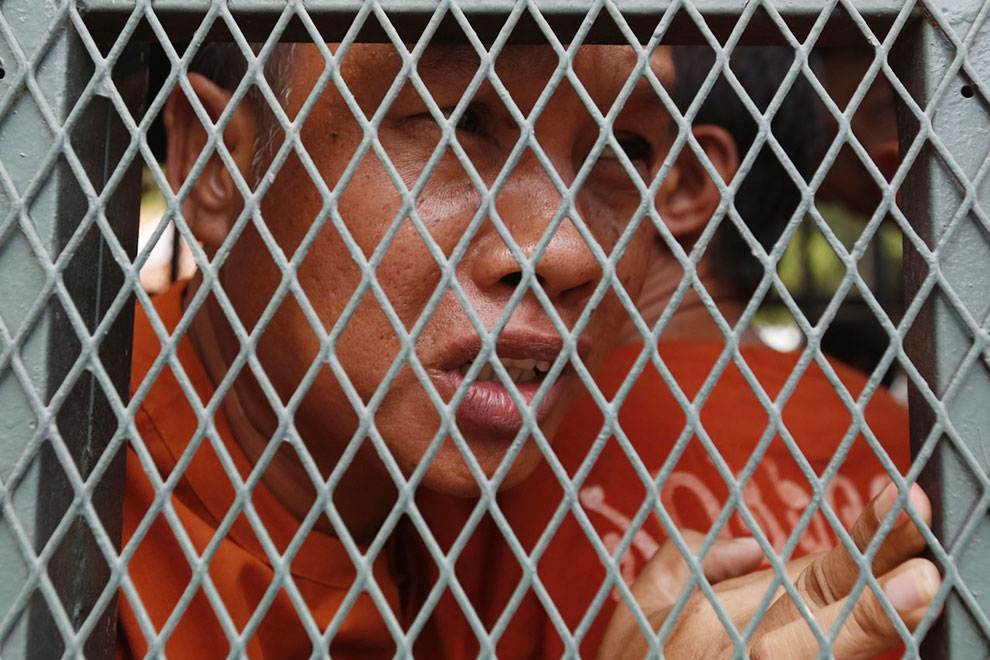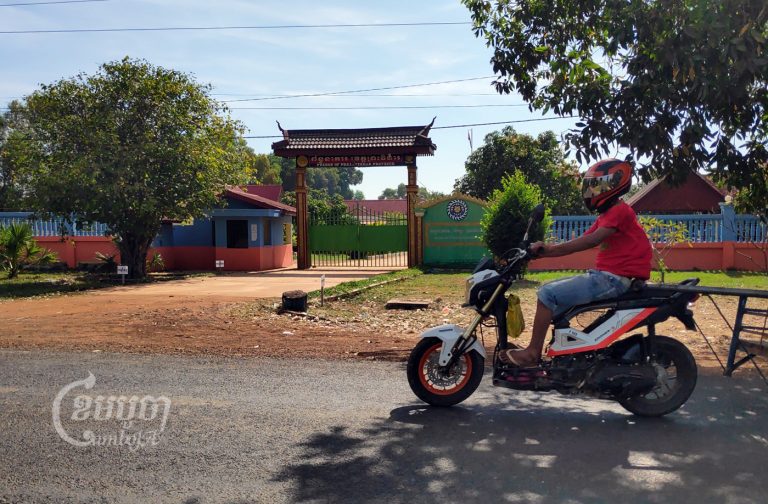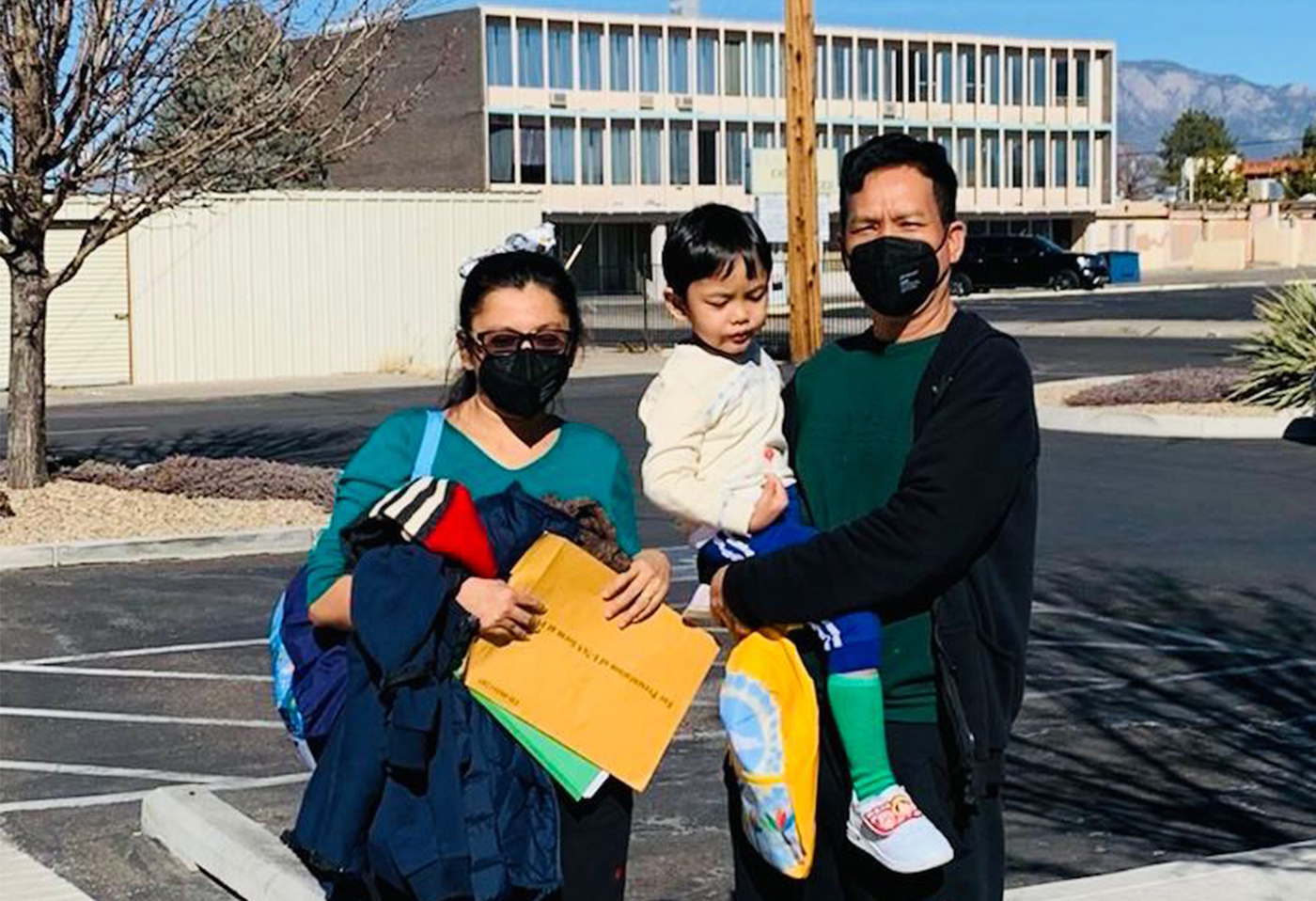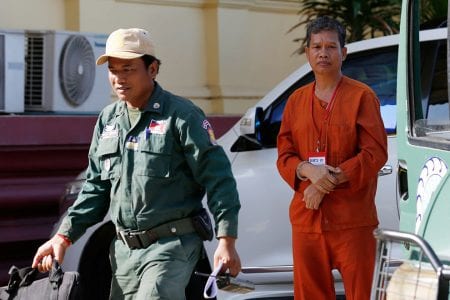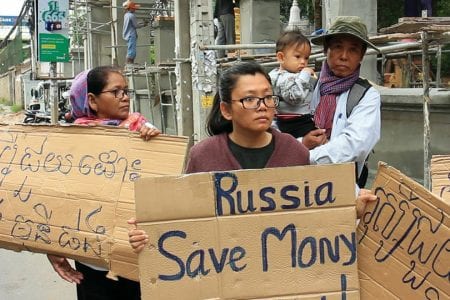Her nearly 2-year-old son cries out for his father, and Long Kimheang responds: “We must be strong.”
“The Cambodian court won’t help papa.”
The back-and-forth has become a routine in their lives since Kimheang’s husband, Rath Rott Mony, was arrested in December, the 36-year-old told CamboJA.
Rott Mony was convicted of incitement in July for aiding Russian news service RT Today in producing a documentary on underage prostitution.
On Dec. 7, Kimheang and Rott Mony — under fire since the documentary’s release two months prior — were in Bangkok applying for a visa to go to the Netherlands.
They had received an invitation from a friend and hoped to be there by Christmas, Kimheang recalled.
But Thai police officers seized Rott Mony at the visa office and took him to the local police station, she said. They produced an arrest warrant from the Phnom Penh Municipal Court written in English accusing Rott Mony of incitement to discriminate.
Rott Mony asked for a lawyer, but instead within five days he was helicoptered to Poipet, at the Thai-Cambodian border, and driven to Phnom Penh, she said.
Kimheang followed quickly after him, arriving in Banteay Meanchey province the next day on Dec. 13, she said.
“When my husband was arrested and he was sent back Cambodia, I carried my son with tears in my eyes,” Kimheang said. As she bought her bus tickets back to Phnom Penh, she thought: “My husband is innocent; why he was arrested?”
Later that night, Rott Mony was sent to Prey Sar Prison, where Kimheang visited him the next day.
“I waited until 1:30 p.m.,” she recounted. “I saw my husband, and his hair had been shaved off. He was deathly pale and he seemed tortured he was so scared.”
The controversy over Rott Mony’s case is heightened by his claim that he was merely an interpreter for the visiting RT crew.
But it did not matter to government officials, who were incensed by the portrayal of poor families allegedly selling their children for sex.
The 27-minute documentary, “My Mother Sold Me,” was immediately attacked by Cambodian officials. Police spokesman Chhay Kim Khoeun said it “destroys Cambodia’s culture and reputation.”
Interior Ministry spokesman Khieu Sopheak, in December, condemned Rott Mony as having “committed a crime,” and said he “will not be free.”
After months of pretrial detention, on June 26 Rott Mony, 48, was sentenced to two years in prison and ordered to pay 70 million riel ($17,200), half each to two families featured in the documentary who testified in court that Rott Mony had told them to lie on camera.
Phil Robertson, deputy Asia director for Human Rights Watch, criticized the conviction in a statement issued after the verdict.
“The charges brought against him are an affront to media freedom,” Robertson said. “The fact of the matter is Cambodia is trying to cover up the very serious poverty that compels urban families to encourage their daughters to engage in sex work to survive economically.”
Ekaterina Yakovleva, the head of RT’s documentary department, also sent a letter to the Cambodian Embassy in Moscow in July to vouch for Rott Mony.
Rott Mony had worked as RT’s local fixer and interpreter, and the film was edited entirely by RT, she said in the letter.
Sam Titseyha, Rott Mony’s lawyer, said he had filed an appeal on July 3, though he had yet to receive a response from the Appeal Court.
“I urge the appeal court: Please drop the charges against my client to allow him to be free to meet with his family and work to find money to support his family,” Titseyha said.
Kimheang said since the trial she and her son now lived abroad, though she would not say where, saying she feared for her security. She said a humanitarian organization was helping her, but that the group’s identity was also a secret.
Kimheang, who had protested 12 times outside the Russian Embassy in Phnom Penh over several months, said she had no more plans to protest.
“Sometimes when it’s time to pay the rent, I don’t have the money to pay,” she said. “I’m especially very concerned about my son’s health, and he needs to eat something because I don’t have the money.”
She had borrowed about $5,000 so far to make ends meet, she said.
But most of all, she said she could not accept the injustice: A person could kill others while driving and be jailed for only a few months; her husband translates interviews for a Russian TV network and is imprisoned for two years.
The government had simply used him to set an example and scare journalists writing about Cambodia, she said.
“I appeal to all people inside and outside the country, please join together to say: Please, the Cambodian government must stop using the court system as a political tool to hurt the people.”


